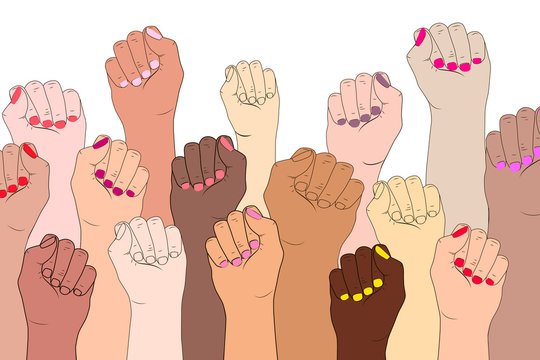The Perfect Woman
Females are affected by perfection more and more in their everyday lives, and most feel that they fail. What makes the women in our society feel as though they are performing so poorly?
Standards set in at a very young age. How a child should be acting. What age you should be talking by. When you should be starting school. Every move is held to a standard created by society. These expectations have a hold on us and while we may think that we outgrow them at a certain age, this is a myth.
And while everyone faces problems with reaching the approval of others, these standards in our world have been influencing women for decades and are still haunting the majority of the female population.
Comparison. Perfection. Standards.
Women are affected by these elements and more in their everyday lives, and most feel that they fail. They fail to please others, fail to please themselves, and fail at being the perfect woman. Why? What makes the women in our society feel as though they are performing so poorly?
According to Katie Hurley in her article, “How Perfectionism Fuels Teen Anxiety,” she explains how perfectionism is fueled by anxiety, especially in teens. Teenagers nowadays face enormous amounts of stress in and outside of school.
“When teens strive to achieve, they are invested in the learning process,” Hurley explains. “When teens strive for perfection, they become paralyzed by the fear of not measuring up in some way.”
What makes these standards, anxieties, and perfectionistic tendencies so damaging is that there really is no “growing out of it.” They follow women into their fields of work causing them to take less risks in their professional lives. It has been proven that men will apply for a job when they only meet 60% of the qualifications.
A woman on the other hand, will only apply for that same job if she meets 100% of the requirements.
We are easily able to see these issues present at Derry Area High School. Seen by students and teachers, people in our building can sense perfectionistic tendencies from not only young girls but adults too. Teacher Mrs. Smith sees perfectionism in all different grades for all different reasons. She feels as though the standards are different for every individual because perfect for one, may not be perfect for another. Along with her own personal experience, Smith also sees her students face some of the same challenges.
Students face many pressures in their academic life. Senior Taylor Myers can agree. Myers can easily say that all the “perfect” standards that pressure her, she places them on herself. “I pressure myself to succeed in whatever I choose to pursue,” Myers admits. “I don’t want to struggle like I have seen others struggle around me.”
As a teen girl, I personally feel the main factor in the perfectionist challenge for women is social media. I see the way young women compare themselves to complete strangers on the internet. I am guilty of it myself, always wishing for more. It is damaging to a girl’s self esteem to be continually comparing their every move to people who live completely different lifestyles and questioning if they are good enough. As teenagers, we are already facing so many struggles and having to deal with constant worries of societal approval is just another block in our roadways.
Both Smith and Myers agree that the presence of social media impacts these standards. Smith stresses the word inadequate when explaining how girls feel when scrolling through their feed. Myers expresses that just being surrounded by posts where people show the best version of themselves we are only seeing 20% of what is on the surface. She feels that “we are being surrounded by perfectionism and the perfect versions of other people makes you feel that they may be living like that all the time, but in reality they aren’t.”
Our younger generations acknowledge this problem and are taking a stand.
Influencers, such as Emma Chamberlain, are speaking out against the “perfect Instagram feed” and encouraging users to expose their more messy sides in life. Being truthful, everyone knows that no one’s life is perfect, so why try to depict it in such a manner that tricks everyone into thinking it is? Influencers are now taking that step to post things that their followers can relate to instead of posting things their followers will compare themselves to. It is the first step in eliminating the perfect standard that so many are striving for.
Stu Smith, VP talent for Fullscreen can agree with Chamberlain. “This new generation of talent is more willing to let their audience in on what they’re struggling with,” Smith says. “That’s not only positive for them, but it’s also positive for their audience, as well as for other content creators who realize that they’re not alone.”

Abigail is a senior writer for the Station. She is the president of Spanish National Honor Society and participates in other clubs such as Interact and...








































